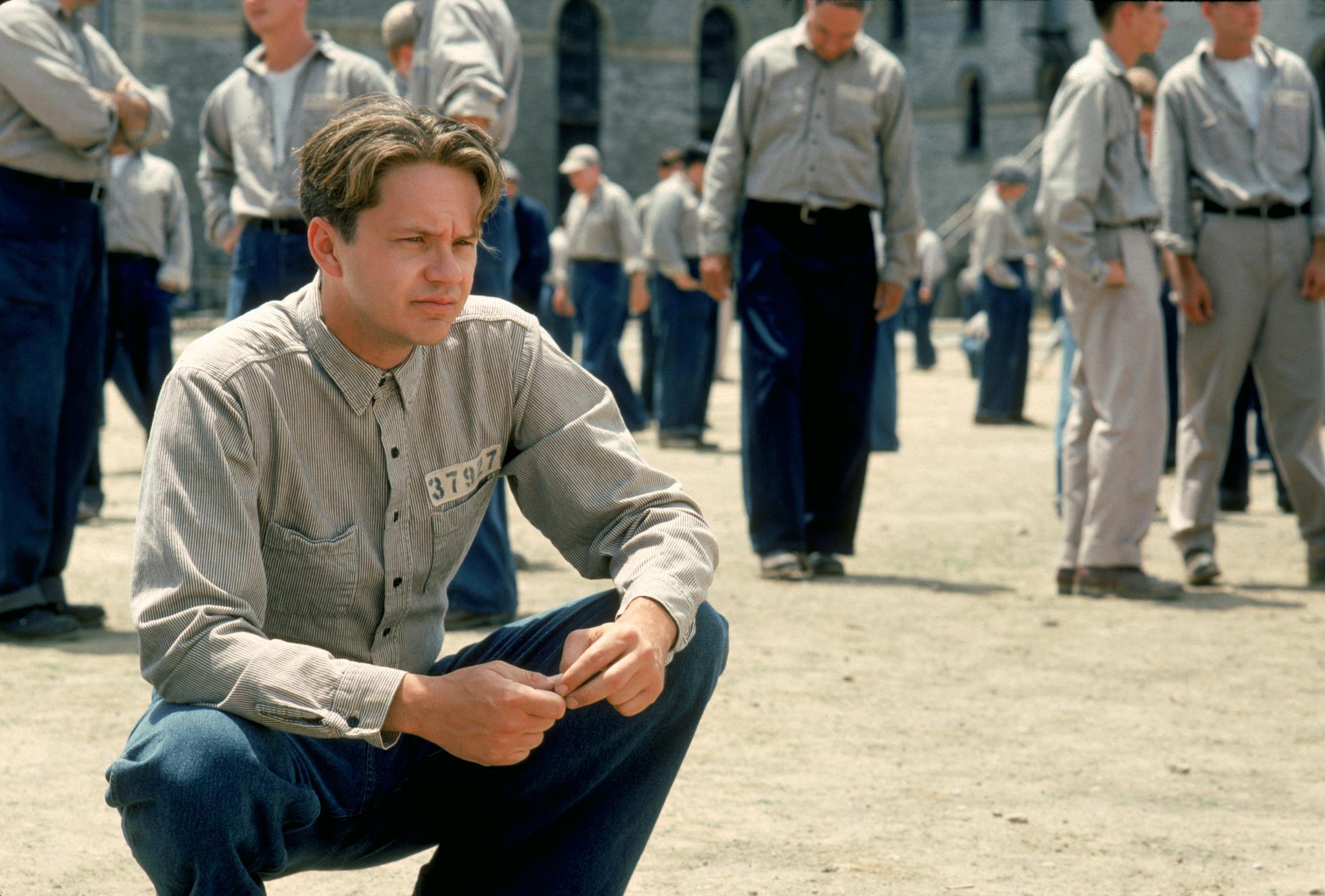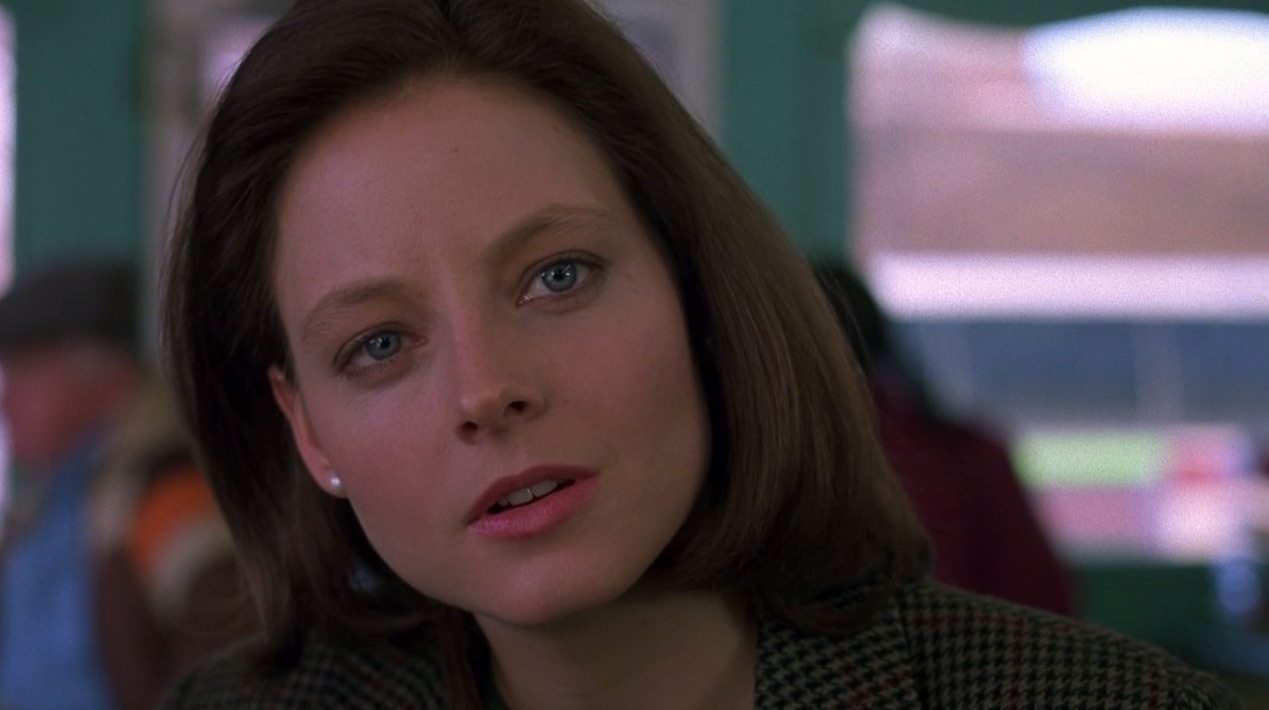
There was a fun little debate going on in the comments section of this Monday’s book review, Killers of the Flower Moon. It came up when I pointed out that the biggest problem with the book was that the main character, Tom White, was so vanilla, so uninteresting, that I had a hard time understanding how they were going to make him work. A few of you chimed in by saying, “Actually Carson, that’s how movies are. The main character is usually the grounded everyman, while it’s the surrounding characters who are the flashy interesting ones.”
As the evidence was laid out before me, I found that my entire understanding of a main character was shattered. Luke Skywalker certainly fit this bill. As did Clarice Starling in Silence of the Lambs. Andy Dufresne in The Shawshank Redemption DEFINITELY fit this mould. And let’s not forgot Neo. These were some of my favorite movies ever. And all the characters were, if not “uninteresting,” certainly not stand-out crazy memorable types. What the hell was going on?? Was it true that in order to write a good movie, your main character had to be, gasp, plain?
So then I started going back through some of the best movies of the last 3 decades to see if this applied across the board. What I quickly found out was that this theory didn’t hold up… at all. Tony Stark. Peter Parker. Ferris Bueller. Louis Bloom (Nightcrawler). Deadpool. Jason Bourne. Forrest Gump. Jordan Belfort. Pat (Silver Linings Playbook). John McClane. Indiana Jones. Juno. William Wallace. Leonard (Memento). When in doubt, go to the data. And the data clearly shows that there are more movies out there where the main character is big, memorable, and interesting than small, ordinary, and plain.

With that said, there are clearly movies where an ordinary main character works. Luke, Neo, Agent Starling, Andy Dufresne. So what’s going on there? A few things, I think. The first is to figure out what your story calls for, an ordinary hero or an extraordinary one? In movies like Star Wars and The Matrix, the entire make-up of the story is built around an ordinary person being thrown on an adventure where they learn to become “extraordinary.” It’s the classic “Hero’s Journey.” For those movies, an extraordinary hero wouldn’t make sense because then there’d be no need to go on the adventure.
Also, each of the worlds those characters existed in were interesting. The world of Star Wars, the world of the Matrix, the world of sordid serial killers, the world of this prison. You could throw Michael Corleone in there from the Godfather – that universe was fascinating as well. These movies could withstand an “ordinary” hero because the worlds themselves were so big and vibrant, characters in themselves. If you tried to place an ordinary character into, say, Die Hard, which takes place in a building, it doesn’t work. The smaller the world, the bigger the character has to be, since he’s going to be carrying more of the load.
So what does this mean for you who’s starting up that next screenplay? Should you go with a more reserved “everyman” or do you try and make your hero flashy and memorable? Unless you’re writing a story that fits squarely into the Hero’s Journey structure, you should try and make your main character stand out IN SOME CAPACITY. How crazy you want to make your character will depend on what you’re going for.
One of the easiest ways to answer this question is to ask if this is a character based movie or a plot based movie. Star Wars is plot based. Nightcrawler is character based. The plot is almost incidental. Therefore, in a movie like Nightcrawler, you’ll want to go big with the character. Do something interesting with him. What that is is up to you (they went with psychopathic whereas a movie like Flight went with addict) but a movie like Nightcrawler won’t work with an ordinary character.

Now, let’s say you decide that your movie is plot-centric. Does that mean you have to go with a reserved main character? No. What it means is that you HAVE THE OPTION to go with a reserved main character. There’s evidence, based on past movies, that it can work. But that doesn’t mean you can’t go big with your main character. And I would suggest that, if you have a choice between one or the other, you make your main character interesting as opposed to not.
Could Iron Man have worked if Tony Stark was a quiet average guy? Maybe. We’ll never know. But I know this – as a fast-talking narcissist, he sure was an interesting character to follow. Could Indiana Jones have worked if Indy was more mild-mannered, didn’t have a sense of humor, sex appeal, or was bit of a dick? Maybe. But it was those added traits that turned him into one of the most memorable characters of all time.
With that said, we can’t discount the evidence that there have been HUGE movies over time with vanilla main characters. So if you write one of those movies yourself, how do you avoid making the main character too boring? How do we make someone work despite the fact that they don’t naturally stand out?
All we need to do is look at the data to find our answer. In the case of Andy Dufresne, Luke Skywalker, and Clarice Starling, there’s one common trait in all of them. Do you know what it is? THEY. DON’T. GIVE. UP. In fact, they’re quite the opposite. They are constantly charging forward despite the odds. Audiences LOVE characters who never stop fighting no matter how bad it gets (mostly because we, as human beings, wish we were that way ourselves). So that’s a big factor. Even though Clarice, Luke, and Andy are kind of “meh” on the outside. We like that their internal guide is always trying. If Andy Dufresne would’ve walked into Shawshank and moped around for 120 pages, that’s the worst movie of all time.
One of the more obvious things is to give the character an internal struggle. It can be in regards to a flaw, an addiction, their past, mourning, anything – as long as they have something to battle with. But this advice comes with a warning label. If it isn’t truthful, IT WILL DO MORE HARM THAN GOOD. If whatever you add only works to tick some screenwriting book box, it won’t work. It needs to feel honest, like something a person in real life would be going through. For Luke, it’s that he has doubts. He wants to be great but he has doubts he can be. And that’s a very honest relatable struggle since we all doubt ourselves. With Agent Starling, the whole saving the lambs backstory —- ehhhh, let’s just say it wasn’t the best part of the film. It felt a bit manufactured. When applying a conflict to these types of characters, better to be understated than over the top.

But for me, the secret sauce in adding spice to a character yet still keeping him grounded is a sense of humor. The great thing about a sense of humor is that it’s one of the easiest ways to connect the audience to a fictional being. If someone says something you think is funny, you immediately like them. The greatest example of this is Rocky Balboa. On the surface, Rocky is the prototypical “everyman.” But the reason Rocky is seen by many as the best everyman of all time is that he’s got personality and he’s got a sense of humor. He’s not afraid to make dumb jokes to get a girl. He’s not afraid to give advice to random kids who flip him off. He’s not afraid to talk to pet turtles. If Rocky was a classic personality-less everyman, he would’ve gotten swallowed up by the burning star that was Apollo Creed. But it was his understated sense of humor that made him stand out.
When it’s all said and done, the type of movie you’re writing will inform you what kind of person your hero should be. But it’s my contention that you’re better off trying to make your hero interesting REGARDLESS of the circumstances, than going with the safer, and only occasionally successful, vanilla everyman.
Carson does feature screenplay consultations, TV Pilot Consultations, and logline consultations. Logline consultations go for $25 a piece or 5 for $75. You get a 1-10 rating, a 200-word evaluation, and a rewrite of the logline. I highly recommend not writing a script unless it gets a 7 or above. All logline consultations come with an 8 hour turnaround. If you’re interested in any sort of consultation package, e-mail Carsonreeves1@gmail.com with the subject line: CONSULTATION. Don’t start writing a script or sending a script out blind. Let Scriptshadow help you get it in shape first!

